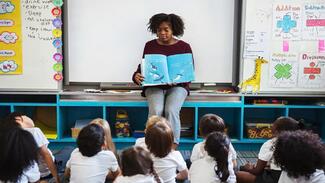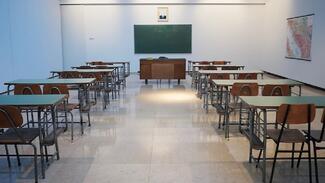A report from September this year has revealed that the number of qualified educators, aged 30 years and below, entering the teaching profession for the first time in the Provincial Education Departments (PEDs), was a whopping total of 4 488.

Over 4000 young and qualified teaching graduates have successfully been placed in teaching positions across the country. But, the same can’t be said for Funza Lushaka graduates.
The report was compiled over April to June 2022, and indicated young and qualified educators were appointed in PED posts. Of the 4000 educators, 1 291 were permanently employed, 2 292 were temporarily employed, and 905 were appointed as substitutes/reliefs.
Related Post:
- Funza Lushaka Bursary Applications Now Open For 2023
- Funza Lushaka Applications Closing Date 2023
- Check Funza Lushaka Bursary Application Status | Complete Guide
The overall total amount of young qualified educators appointed during the 2020/2021 financial year was 18 635.
However, the same success cannot be said for Funza Lushaka students entering the teaching profession.
During the report’s presentation, the Parliamentary Committee asked why the absorption rate of Funza Lushaka students into the teaching workforce was low and what is being done to address the issue.
Dr. Reginah Mhaule, Deputy Minister of the Department of Basic Education (DBE) clarified that initially, the National Student Financial Aid Scheme (NSFAS) was not supporting students for teaching and this is the reason for the implementation of Funza Lushaka as a specified bursary scheme to encourage learners to study teaching at universities.
The low absorption rate of Funza Lushaka students into teaching positions comes at a time when there is ongoing speculation about a shortage of educators in South African schools, as well the struggles qualified teachers are having when it comes to finding employment.
The Deputy Minister also explained that another reason for the low absorption rate of these bursary-funded students is because some students change their courses at university, and being studying non-priority teaching subjects; the Department is focused on absorbing all students if there is a need for specific subjects within schools.
Mr. Hubert Mathanzima Mweli, DBE Director General, added onto the Deputy Minister’s response on the matter of Funza Lushaka, saying that DBE is no longer solely prioritizing Funza Lushaka students when it comes to placing them in schools.
The Council of Education Ministers has taken a decision that graduates, whether self-funded or have been funded through other forms of government, must be given the same priority in terms of placement.
According to the report, over the last five years and with the COVID-19 pandemic, 20 000 educators have left the teaching profession in public schools. Resignations are around 7 000 to 8 000; of the 20 000, half of them are retired.
A plan has been put in place to prepare for the loss of teachers over the next ten years. The average age for the profession is moving from 47 to 46 years old; it is slow but moving in the right direction. New subjects and priorities are taken into account as the education system progresses.
The DBE has to replace these educators annually, and Funza Lushaka graduates provide those replacements.
Funza Lushaka Graduates Are Not Finding Placements In Schools
Demzyportal Category:


